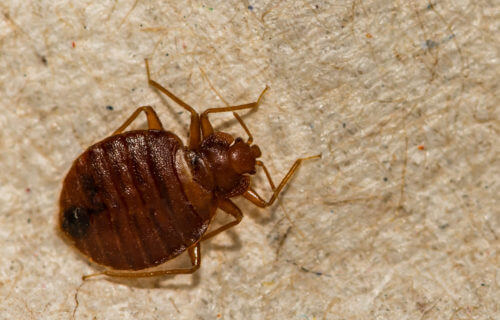RALEIGH, N.C. — Two common veterinary drugs to fight parasites may also help fight against bed bug infestations, with one particularly showing strong potential, according to new research from North Carolina State University.
“The bed bug is a globally important insect,” says Cobal Schal Blanton J. Whitmire, Distinguished Professor of Entomology at NC State, in a statement. “The last few decades have seen a resurgence of bed bugs in homes, and now we’re seeing bed bugs return to poultry farms. Since there is no proven method to stop bed bugs in commercial farms, the potential problems on poultry farms could be massive. We’re trying to get ahead of it by developing technologies that can eliminate bed bugs.”
The team tested mortality rates using fluralaner and ivermectin, which are two drugs that are prescribed for dogs and cats to kill fleas. They did this by conducting experiments after the pests consumed blood mixed with the drugs, and after bed bugs bit and fed off chickens that had received the drugs either topically or orally.
On the lab bench, both drugs were very effective and killed most of the bed bugs. Fluralaner specifically showed promise against bed bugs that fed on chickens. It even worked well against bed bugs that were resistant to insecticide. On the other hand, ivermectin was not effective against bed bugs that fed on the chickens. The team thinks that this may be because the chickens can process the ivermectin within their systems quickly.
The team mentions that as of now, it’s not well-understood how bed bug infestations affect poultry health and food production.
“The health effects to poultry from bed bug infestation are not well documented, but anecdotally poultry farmers see animal welfare concerns like stress and anemia, which could negatively affect meat or egg production,” says Maria González-Morales, a former Ph.D. student at NC State and the first author of the paper.
They agree that adding fluralaner in poultry drinking water could possibly protect them against bed bug infestation within the farms. Additionally, they hope that their findings help support human health, specifically regarding those who work closely with poultry in factory farms.
“There are also concerns for workers on these farms considering how easily bed bugs can spread from poultry to people,” Schal adds.
Continuing to monitor the spread and further explore the drinking water strategy along with other possible frameworks will remain crucial in the eradication of bed bugs within these infested farms.
The findings are published in the journal Parasites and Vectors.

Ivermectin is NOT a flea killer. It is a de-wormer.
what about the point that we are adding more chemicals to our food source???? People eat chicken!
If you have a better solution I’m sure they’ll be happy to hear it.
Excited to hear about this study and the success of one of these veterinary meds to eliminate bedbugs in chicken pops. Hopefully a next step will be to develop a safe method of using this medication to eliminate infestations in homes and commercial settings. Bedbug infestations harm human health and I believe contribute to an increase in the homeless population. Many people go homeless and ruin their credit due to bedbug infestation a In Northern California, it is a serious problem- escalating the cost of rental property maintenanc and therefore the cost of scarce housing.
How about dustmites & bookworms?
Or invent some beds or sheets, pillows etc that anti- bugs, mites etc…
I have peacocks and some have stick tight fleas I have been trying to get rid of them for two years what can I use. thank you